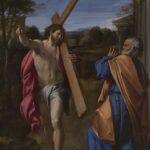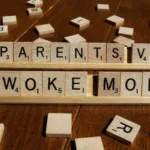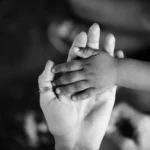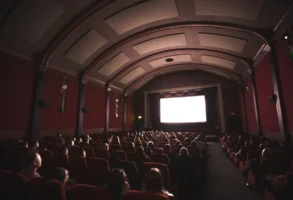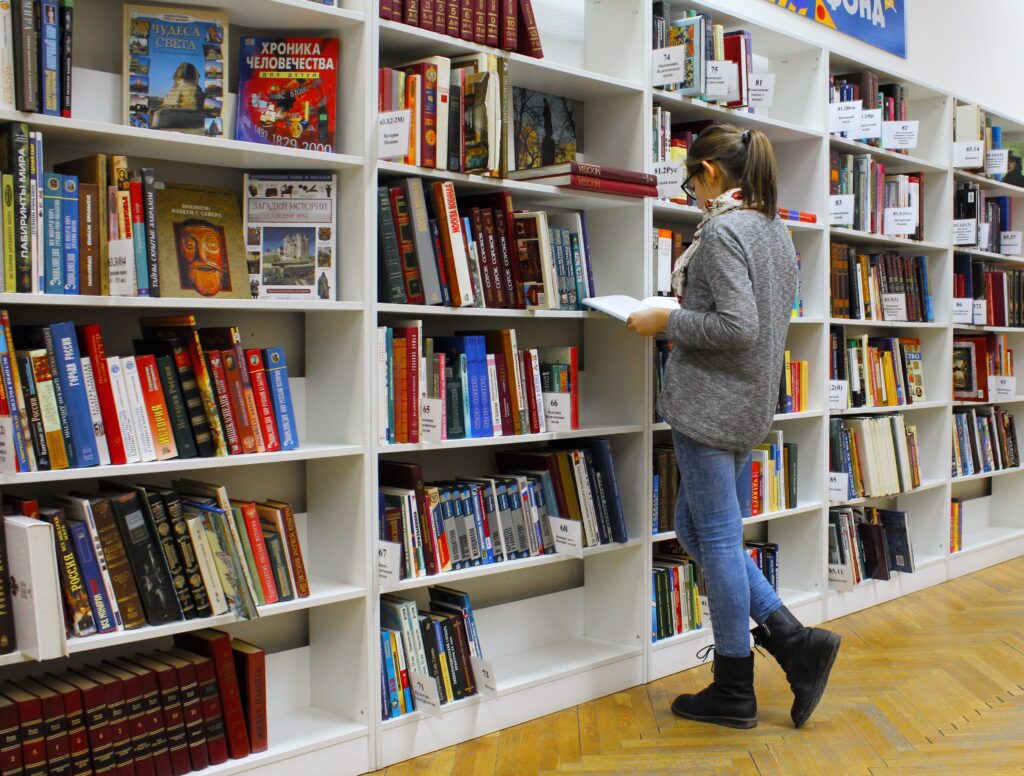
Published March 20, 2023
I can’t remember the first time I stepped into a Barnes and Noble, but it must have been when I was in college decades ago. I was charmed by the rows and rows of books, the coffee bar, and the comfortable chairs and tables situated around the store.
Growing up in the very liberal Eugene, Oregon, I was used to bookstores that featured crystals, metaphysics sections, astrology chart reading, and instructions about witchcraft, punctuated by the pungent smell of patchouli incense. Barnes and Noble was a welcome relief to that crunchy Oregon vibe.
When I entered graduate school, Barnes and Noble became an oasis. Its coffee and cinnamon scones beckoned me from the 38 miles between it and my rural university. I spent entire days there, writing papers, buying and reading books, and I even had my confession heard there by a fellow shopper and priest. When I started having children, I would swing by before weekly doctor’s appointments to grab one of the beloved scones when cravings got the best of me. And when I was writing, I sat in the café and paged through research for my doctorate and eventually books. Finally, when my first book came out, it was a special moment to read my name on its spine among the stacks.
As my children grew, I would take them to Barnes and Noble, picking out favorite books or grabbing gifts for friends. When I started homeschooling, the store gave me an “educator’s card” providing a 20 percent off discount on books and other children’s items.
And then it happened. One day, they stopped selling the cinnamon scones. I was sad, but after a 25-year run, I could hardly blame them for wanting to change the menu. But it felt like an omen; the menu wasn’t the only change happening. Like milk left out in the sun too long, the merchandise started to sour. I started noticing an uptick in crystals, tarot cards, and astrology books.
The expanding occult and woke content wasn’t just in one section, but now seemed to be almost everywhere, oozing into nearly every department. With five kids in tow, I found myself herding them away from tables featuring LGBT books for children, the game section with psychic pagan games like “The Tree Magick Oracle Deck,” and the display of new hardcover books that at first glance seemed like classics but had titles such as “Chakra Healing,” “Sacred Geometry,” “Palmistry,” “Wicca,” “Reiki,” and “Auras,” and every other sort of esoteric nonsense.
There were LGBT books sandwiched in the young adult section, and the gift section included a pack of 78 crystals “to energize your life,” an astrology self-care journal, make-your-own-tarot decks, and even seed packets to plant based on your astrological sign. The only places that seemed to provide solace were the section of children’s toys and the cookbook aisle. Upon leaving, I felt like we all needed a good dousing of holy water.
In hope beyond hope, I hung on — after all, it still offered homeschoolers like me a healthy discount (most companies limit educators to teachers in institutions and not homeschooling moms). And then it finally happened — they got rid of the educator’s card. No more discount. I suppose I should have broken up with Barnes and Noble before that fateful day, but old habits and friendships die hard. The end of the discount and the merchandise now saturated in the pagan, woke, and occult made my choice quite clear: We had to break up. And it wasn’t me. It was them.
As I thought about the transformation of Barnes and Noble, something familiar came to mind: the bookstores I grew up with in liberal Eugene. The old crunchy Oregon vibe has prevailed upon this megastore, but with more money and better marketing. The only thing now missing from Barnes and Noble is the patchouli incense. But maybe, given enough time, they’ll add that too.
Carrie Gress, Ph.D., is a Fellow at the Ethics and Public Policy Center where she co-directs EPPC’s Theology of Home Project. She earned her doctorate in philosophy from the Catholic University of America, as is the co-editor at the online women’s magazine Theology of Home.
Carrie Gress, Ph.D., is a Fellow at the Ethics and Public Policy Center, where she co-directs EPPC’s Theology of Home Project. She earned her doctorate in philosophy from the Catholic University of America and is the co-editor at the online women’s magazine Theology of Home.






